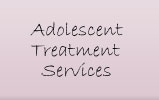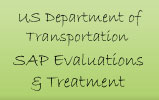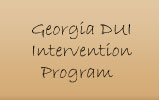Structured Adolescent Psychotherapy Groups |
.jpg) |
![]()
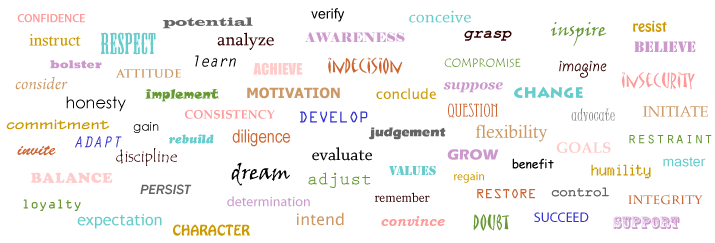
Columbus Aftercare is dedicated to an ongoing commitment to community outreach. We are pleased and very proud to introduce a Structured Adolescent Psychotherapy Group setting right here in Columbus by offering adolescent treatment services to some of the most at-risk teens within the greater Columbus community. Craig Rich is an approved provider within the Georgia Medicaid, WellCare, and Amerigroup networks. ********************************************************** YES WE DO ... wish to conduct an ongoing Structured Adolescent Psychotherapy Group on-location at your Church, Community Center, or other conveniently located setting within your neighborhood! ********************************************************* At the present time, we are recruiting 12 adolescents between the ages of 13 and 18 years of age. These teens will constitute the formation of a new Structured Adolescent Psychotherapy Group we are targeting to begin in late spring 2016. TREATMENT REGIME: This group will be open-and-ongoing, providing 4 full hours of treatment per week. Each group member will participate in two, 1.5 hour group therapy sessions per week and one weekly individual or family therapy session. Years of experience have shown that once-weekly adolescent groups do not provide adequate exposure to facilitate many of the changes necessary to meet the complex challenges and circumstances that these teens often face. We urge you to contact Craig Rich at Columbus Aftercare for specific details concerning enrollment of your teen in this meaningful mental health opportunity. Adolescent Group(s) can be flexibly scheduled, as can Individual or family therapy sessions, most often during late afternoon, evening, or weekend hours (Saturday & Sunday). CALL US TODAY TO INQUIRE ABOUT A FORMAL PRESENTATION DETAILING THE DYNAMIC TREATMENT MODEL THAT CHARACTERIZED OUR Structured Adolescent Psychotherapy Group. |
![]()
The Structured Adolescent Psychotherapy Groups offered through Columbus Aftercare have been developed to address the systematic interruption that is frequently found in the adolescent life cycle. Our goal is to restore necessary emotional balance and harmony to teens and their families. |

The simplest task of adolescence is to learn the patterns of action required for participation in society. The difference between confident and productive adults and disillusioned ones is to be found in how they experience their day-to-day activities. The hidden curriculum of growing up lies in how a person responds to daily situations; mastering interactions with parents, achieving harmony with friends, learning to handle the pressures of school, and developing means to transcend everyday conflicts.

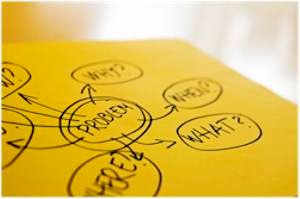 |
...To stimulate assistance and confrontation from peers. ...To provide miniature real life situations. |
...To stimulate new ways of dealing with situations and developing new skills in human relations. ...To stimulate new concepts of self and new models of identification. ...To feel less isolated. ...To provide a feeling of protection from the adult world while undergoing changes. ...To help maintain continued self-examination as a bind to therapy. ...To allow the swings of rebellion or submission that encourages independence and identification with the leader. ...To uncover relationship problems not evident in individual therapy. |
____________________________________________________


.jpg) |
Short-term group therapy is a preferred modality for both teens and pre-teens for many reasons. |
Short-term group therapy is a treatment that is acceptable to most teens, even ones who are highly ambivalent about treatment and mental health professions in general. Treatment planning is geared toward individual growth and development. It encourages all participants to adjust necessary attitudes, values, and beliefs, family and social concerns, goal-setting, and emphasizes personal responsibility for all actions and behaviors.
Our Structured Adolescent Psychotherapy Groups take an evidence-based cognitive-behavioral approach to treatment. And through the use of Cognitive-Behavioral Therapy -- adolescent clients are compelled to take an active role in their own treatment process.
"Behavioral homework" is an integral part of most all individual and group therapy sessions. A self-understanding of how specific behavioral changes will benefit the adolescent is the cornerstone of the treatment model that we offer. This self-understanding is referred to as cognition, hence the other-half of the cognitive-behavioral connection.

"The assignment of approximately one dozen different individual group roles works to insure that even the most resistant, alienated, and angry teen becomes drawn into the group process. The necessity and importance of each group member fulfilling their group role(s) is vital to the healthy functioning and cohesion of the group itself. And in this manner ... no one gets left behind." |
|
Craig Rich LCSW, MAC, SAP Programs Director |
|
We can provide instant-result saliva
testing
for both alcohol and other drugs.
___________________________________________
For more information please contact
Programs Director Craig Rich LCSW, MAC, SAP
(706)761-2998



